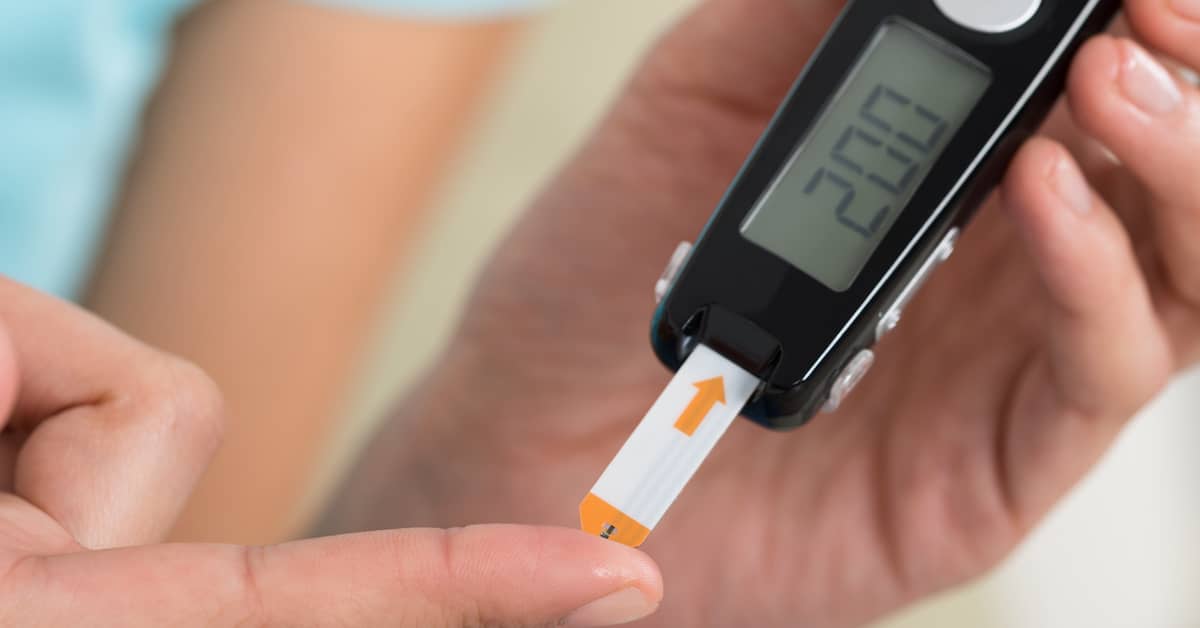
Risk of Dementia Surges by 54 Percent in Prediabetes
The UCL researchers analyzed half a million people with an average age of 58 from the United Kingdom Biobank - a large-scale biomedical database. All participants had an HbA1c test which gives a picture of the average blood glucose level over several months. Then, researchers divided the participants into five groups according to the blood glucose levels found. In a subgroup of 18,809, researchers assessed cognition by looking at data from repeated tests of visual memory. They also conducted MRI brain scans on the 35,418 other participants. Because of the group's relatively young age, the number of people with cognitive decline was low. However, the researchers found that - compared to people with normal blood sugar levels - those with prediabetes had a 42 percent greater likelihood of cognitive decline and a 54 percent greater likelihood of developing vascular dementia (a condition caused by reduced blood flow to the brain).39 Percent Increased Risk of Dementia in Diabetics
Meanwhile, participants with diabetes had a 39 percent higher likelihood of cognitive decline and were almost three times more likely to develop vascular dementia. Unlike those with prediabetes, diabetics were more likely to develop Alzheimer's. While the risk of dementia is high for both diabetics and prediabetics, overall, people with prediabetes are believed to be at the greatest risk for cognitive decline, says Dr. James Giordano. As the Georgetown University neurologist explained, "Prediabetic people are often not under therapeutic care and walk around with levels of blood sugar that are problematic but not controlled." Even occasional episodes of elevated blood sugar are harmful, he added, because sugar metabolites build up in brain cells, causing systemic inflammation.The Brain on Fire
"These oxidative metabolites cause damage to cell membranes like crazy,” says Dr. Giordano. “In the brain, blood vessels become tight, rigid, and leak chemicals that also are inflammatory. You begin to see areas of cell death due to increased oxidative damage and hypoxia or oxygen starvation, which harms cognition and promotes vascular dementia. If you see your A1C numbers creeping up and it remains elevated it’s actually a yellow flag if not a red flag." MRI scans provided real life evidence of this phenomenon, showing that those with prediabetes had a smaller hippocampus and a greater volume of lesions on the brain called white matter hyperintensities. The latter are a measure of vascular brain damage. Both conditions are linked to age-related cognitive impairment. Lead researcher, Dr. Victoria Garfield, explained, "Based on previous research and now our own findings… we can certainly say that prediabetes is a high-risk state for people to be in and that we now know that it is certainly associated with greater risk of cognitive decline and vascular dementia, in particular."Know Your Blood Sugar
Since millions of Americans have no idea they are in the prediabetes category, having a blood test is really important. A useful start is to take a prediabetes risk test, available at the CDC website. Go to https://www.cdc.gov/prediabetes/takethetest/ It only takes a minute to complete. It will indicate if you’re likely to have prediabetes. If the results suggest you are prediabetic, share them with your doctor and ask for a blood test to confirm your blood sugar status. If you’re concerned about unhealthy blood sugar levels, the first thing to do is to reduce sugar and refined and total carbohydrates in your daily diet, followed by implementing a regular exercise regimen that includes at least 150 minutes of exercise each week. A number of nutritional supplements can also help lower your blood sugar, such as chromium, berberine, cinnamon and vitamin B1, for example.- https://pubmed.ncbi.nlm.nih.gov/23924004/ Glucose levels and risk of dementia
- https://www.sciencedaily.com/releases/2013/08/130807204835.htm
- https://dom-pubs.onlinelibrary.wiley.com/doi/10.1111/dom.14321 HbA1c and brain health across the entire glycaemic spectrum
- https://www.ucl.ac.uk/news/2021/feb/prediabetes-may-be-linked-worse-brain-health
- https://www.healthline.com/health-news/how-higher-blood-sugar-levels-can-harm-brain-health
